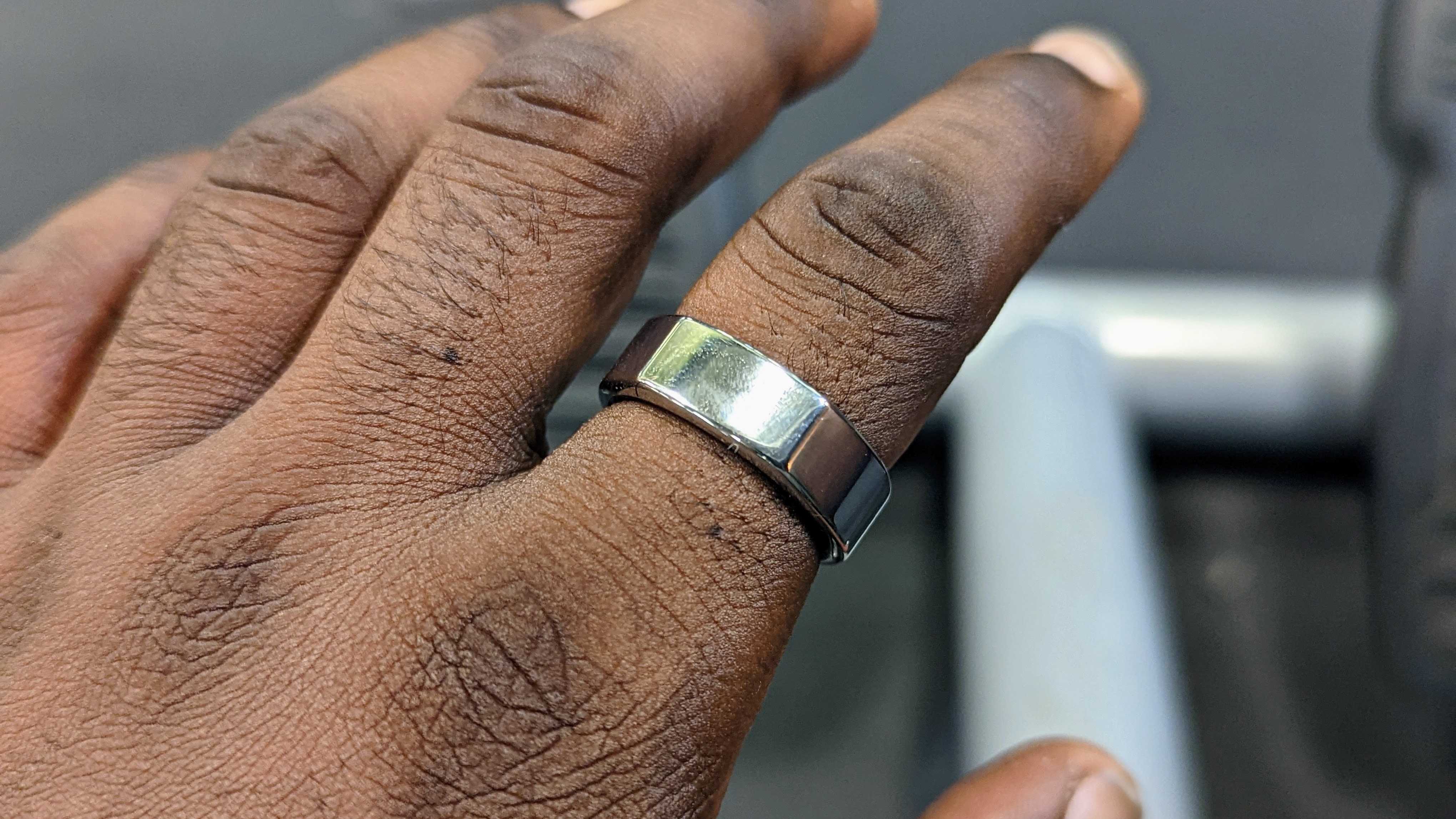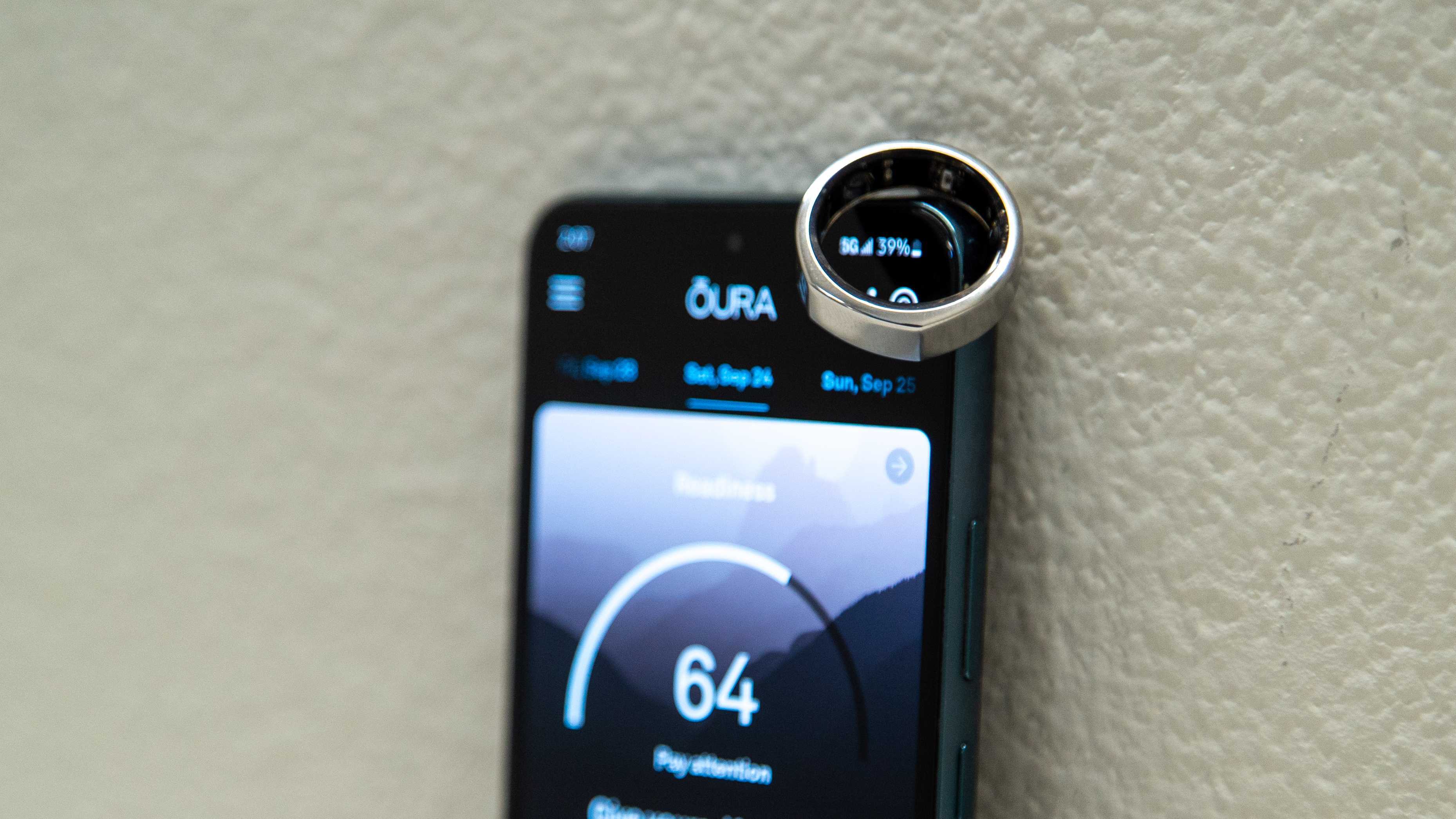Evidence of a Galaxy Ring is piling up; here's what we want from the Oura Ring rival
Samsung will likely release its first-ever smart ring in early 2024, and we have a vague idea of what it'll look like.

What you need to know
- References to the Galaxy Ring name, logo, and other information were found within the Galaxy Wearable app.
- Allegedly, the update code revealed information that the Galaxy Ring will launch in early 2024 and use its own app separate from Galaxy Wearable.
- Previous rumors suggest the Ring would have PPG and ECG sensors and support gesture controls for Samsung phones and TVs.
After several credible rumors and leaks, we now have more definitive proof that the Samsung Galaxy Ring exists. A recent Galaxy Wearable update revealed a probable logo for the Galaxy Ring, while also confirming the name.
Reporting the news, 9to5Google says the Wearable app update confirms the Galaxy Ring name and shared the hidden ring icon. The sketch gives us very little to speculate on, except that it doesn't appear to show any kind of mini-display.

Similar to the Oura Ring Gen 3, you'll likely depend on your phone to see your health data or retroactively confirm that you completed an auto-detected workout.
Samsung is expected to unveil the smart ring at the first Galaxy Unpacked event in 2024, alongside the Samsung Galaxy S24 phone lineup. The publication claims the app files "directly confirmed" a 2024 release, while leaker Ice Universe claimed that the Galaxy Ring will be a "star product" at a January Unpacked event.
The publication also says that you'll use a second Android app for "needed additional controls" with the Galaxy Ring in addition to Galaxy Wearable and that the ring will connect over Bluetooth.
In a past Galaxy Ring leak from The Elec, we learned that the device would allegedly sport PPG and ECG sensors for tracking heart rate, irregular heart rhythm, and blood pressure, and to "control electronic products such as laptops, smartphones, and TVs."
In other words, you'd be able to sync the Galaxy Ring with the Galaxy S24 or your Samsung TV and use gesture controls in lieu of an S Pen or remote control. It's unclear if these features will only work with Samsung devices or all Android phones. The same applies to its AFib detection: the Galaxy Watch 6 requires a Galaxy Store-exclusive app to register ECG readings.
Be an expert in 5 minutes
Get the latest news from Android Central, your trusted companion in the world of Android
What we want from the Samsung Galaxy Ring

Several Android Central writers have tested (or still wear) the Oura Ring Gen 3, and have strong opinions on how a Samsung Galaxy smart ring could be better or worse.
For context, the Oura Ring measures heart rate, blood oxygen, and skin temperature, but doesn't measure arrhythmia. It weighs 4–6 grams, has a water-resistant titanium design, automatically detects workouts, and lasts 7 days per charge. It costs $299 and up — you can pay more for a design upgrade — plus a $5.99/month subscription.
Price is the first concern on our minds. If Samsung charges the same $299 price as its Galaxy Watch 6, that'll make it too costly for many; we'd ask for a similar level of quality as the Oura Ring but with a lower price tag. We also hope that Samsung Health will remain subscription-free, rather than following in Apple's Fitness+ footsteps.
Sleep tracking will make or break the Galaxy Ring as a device. Plenty of people who don't like wearing a watch to bed will prefer a ring, but Samsung will need to do more than just say how long and well you slept. We'd want an equivalent to Fitbit's Daily Readiness or Oura Readiness scores, which take both sleep quality and recent activities into account.
It'll also be important to see how well the Galaxy Ring handles automatic workout detection since it most likely won't have any buttons to trigger one or a display to show information. You'll have to check in Samsung Health after the fact to see whether it registered your workout.
On the subject of the app, we suspect this will be another device that caters to Galaxy phone owners above everyone else. If gesture controls and AFib detection are locked to the Samsung ecosystem, that doesn't leave much for non-Samsung fans to get excited about.
If it is essentially Samsung-exclusive, then the Galaxy Ring had better offer some truly cool and seamless gesture controls for Galaxy devices — controls that don't trigger accidentally when just moving your hands normally. That could be a challenge to pull off.
Another important consideration is some form of "Find my ring" feature. Without naming names, one of our colleagues has managed to lose two Oura Rings, and Bluetooth alone isn't always enough to track one down. Google's delayed Find My network may help on this front, but it'd be nice if the Galaxy Ring had Ultra Wideband support for pinpoint location data when it falls somewhere hard to find. GPS would be great, but probably wouldn't fit inside a compact ring.
My colleagues frequently complained about "ring fatigue" when wearing the Oura Ring. The more chips and sensors that Samsung squeezes into the Galaxy Ring, the heavier it'll be; Samsung needs to prioritize a petite design so people will want to keep wearing it, even at the expense of other features (like UWB).
If Samsung can strike the right balance between comfort and smarts, the Galaxy Ring could really strike a chord with some fitness fans.

Michael is Android Central's resident expert on wearables and fitness. Before joining Android Central, he freelanced for years at Techradar, Wareable, Windows Central, and Digital Trends. Channeling his love of running, he established himself as an expert on fitness watches, testing and reviewing models from Garmin, Fitbit, Samsung, Apple, COROS, Polar, Amazfit, Suunto, and more.
